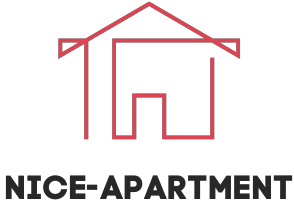Renting a property can be a rewarding investment for landlords and provide an essential service for tenants. However, it’s crucial that both parties understand their obligations and rights to ensure a successful rental experience. This article will discuss the key aspects of the landlord-tenant relationship, covering essential topics such as rent, lease agreements, property maintenance, and legal requirements. By understanding these aspects, landlords can protect their investments and tenants can ensure they are treated fairly.
Rent Collection and Lease Agreements
The foundation of any landlord-tenant relationship is the rental agreement. This legally binding document outlines the terms and conditions governing the use of the property, including the amount of rent, payment schedule, and duration of the lease. Both landlords and tenants have specific rights and responsibilities when it comes to rent and lease agreements.
Importance of a Comprehensive Lease Agreement
The lease agreement serves as the cornerstone of the landlord-tenant relationship. As a landlord, it is crucial to have a well-drafted and comprehensive lease agreement that outlines your expectations and responsibilities, as well as those of your tenant. This document should include:
- Rent amount and payment schedule
- Duration of lease and any renewal options
- Security deposit amount and conditions for return
- Maintenance and repair responsibilities
- Conditions for lease termination and eviction
- Rules and regulations for the rental property, such as pet policies or noise restrictions
Without a clear and detailed lease agreement, disputes can arise, and landlords may struggle to enforce their rights and protect their investments.
Rent Collection and Late Fees
Landlords have the right to collect rent from tenants as outlined in the lease agreement. Rent is typically due on a specific day each month, and landlords may choose to impose a late fee if tenants fail to pay by the agreed-upon date. It’s essential to include any late fee provisions in the lease agreement to ensure they are legally enforceable.
Tenants have the responsibility to pay rent on time and in full. Failure to do so can result in late fees, and in severe cases, eviction from the property. If tenants are struggling to pay rent, they should communicate with the landlord to discuss potential solutions or payment plans.
Property Maintenance and Repairs
One of the most critical aspects of the landlord-tenant relationship is the responsibility for maintaining the rental property. Both parties have specific duties when it comes to property maintenance, and understanding these obligations can help prevent disputes and ensure a well-maintained living space.
Landlord Responsibilities
Landlords are responsible for maintaining the rental unit in a safe and habitable condition. This includes ensuring proper functioning of:
- Plumbing and electrical systems
- Heating and cooling systems
- Appliances provided by the landlord
- Structural aspects of the property, such as the roof, walls, and foundation
In addition, landlords must address any health and safety hazards, such as mold, pest infestations, or broken windows. They are also responsible for complying with all applicable housing and building codes.
If tenants report maintenance issues, landlords must respond promptly and make necessary repairs. Failure to do so may result in legal action by the tenant or even allow the tenant to withhold rent until repairs are made.
Tenant Responsibilities
Tenants are responsible for keeping the rental property clean and in good condition. This includes:
- Proper disposal of trash and waste
- Preventing damage to the property caused by negligence or misuse
- Reporting any maintenance issues to the landlord in a timely manner
If tenants cause damage to the property beyond normal wear and tear, they may be financially responsible for repairs. In some cases, this may involve deductions from the security deposit upon lease termination.
Legal Rights and Responsibilities
The landlord-tenant relationship is governed by various federal, state, and local laws. Both parties must adhere to these laws to ensure a fair and compliant rental experience.
Fair Housing and Discrimination Laws
Landlords must abide by fair housing laws, which prohibit discrimination in the rental process based on characteristics such as race, religion, sex, familial status, disability, or national origin. This means landlords cannot:
- Refuse to rent to a tenant based on these protected characteristics
- Impose different terms or conditions for rental based on these characteristics
- Make discriminatory statements or advertisements
Tenants have the right to fair treatment during the rental process, and if they believe they have been discriminated against, they can file a complaint with the appropriate government agency or seek the assistance of a real estate lawyer.
Privacy and Access to the Rental Property
Tenants have the right to privacy and quiet enjoyment of their rental unit. This means landlords cannot enter the property without a valid reason and without providing proper notice, typically at least 24 hours in advance. Valid reasons for entry may include:
- Inspections
- Repairs or maintenance
- Showing the property to prospective tenants
Landlords must also respect tenants’ rights to privacy by not disclosing personal information to third parties without consent.
Evictions and Lease Termination
Both landlords and tenants have specific rights when it comes to ending the lease agreement. Landlords may terminate a lease if a tenant:
- Fails to pay rent
- Violates the terms of the lease agreement
- Engages in illegal activities on the property
However, landlords must follow the proper legal process for evictions, which typically involves providing the tenant with written notice and allowing a specified period for the tenant to correct the issue or vacate the property.
Tenants have the right to proper notice and due process during the eviction process. If they believe their landlord is attempting to evict them unlawfully, they may seek legal help or consult a tenant rights lawyer.
Balancing Rights and Responsibilities
Understanding the obligations and rights of landlords towards tenants is crucial for a successful rental experience. By creating clear and comprehensive lease agreements, maintaining open communication, and respecting the legal rights of both parties, landlords and tenants can work together to create a positive and mutually beneficial living arrangement.

